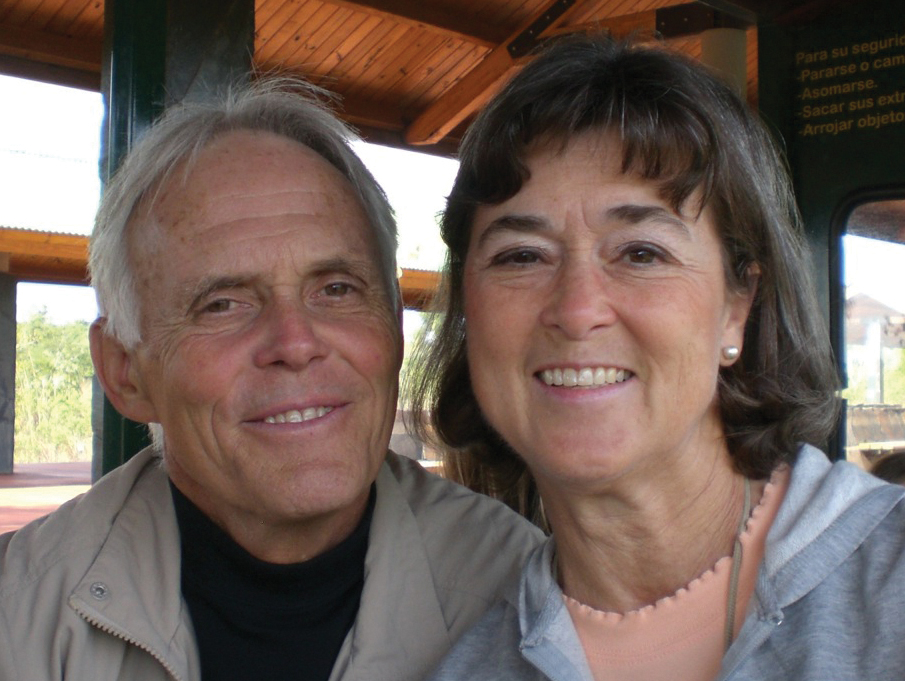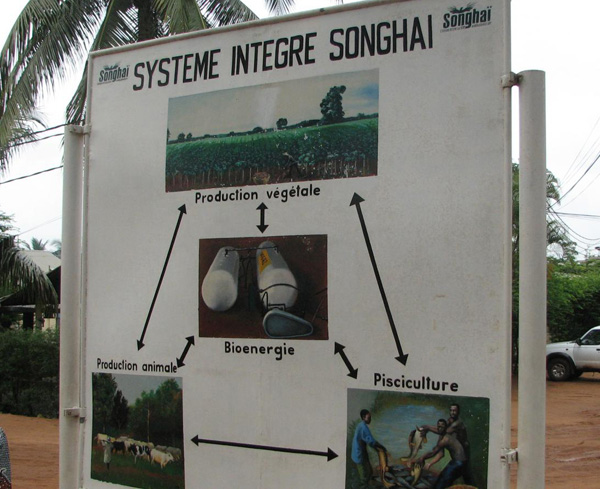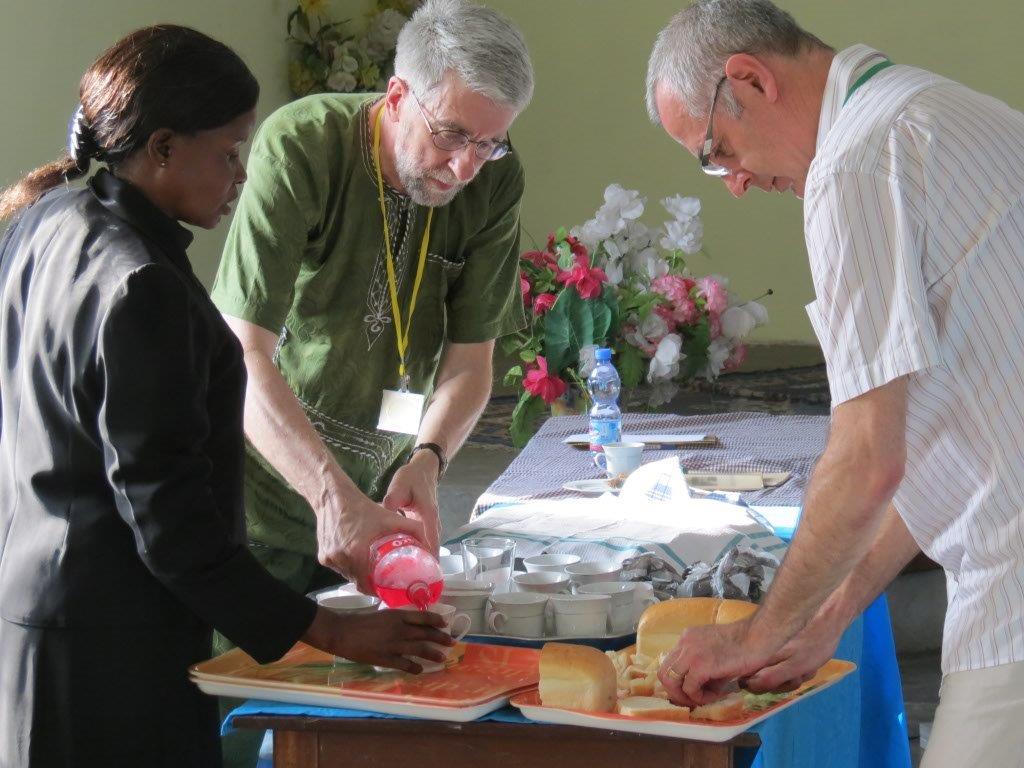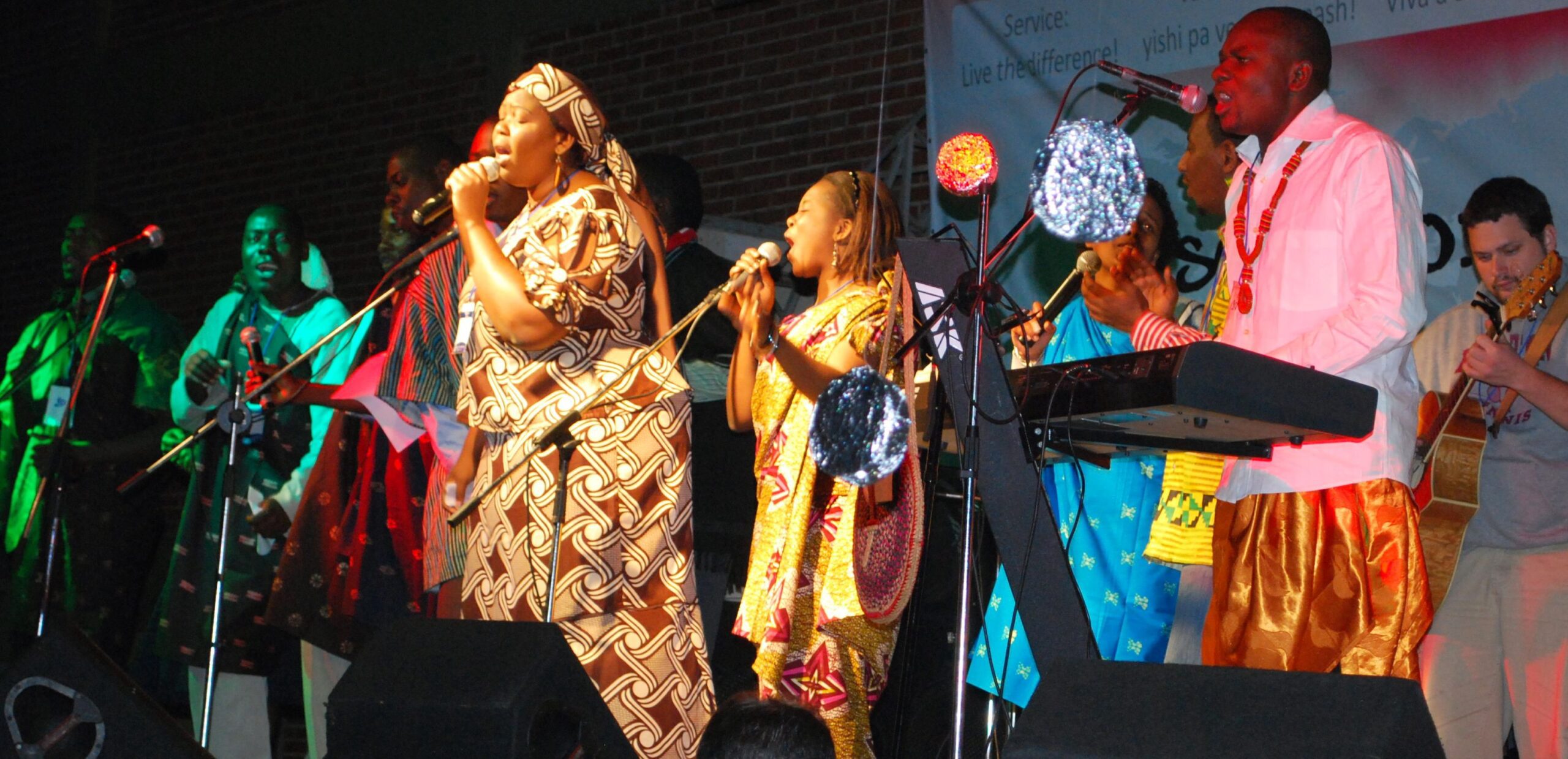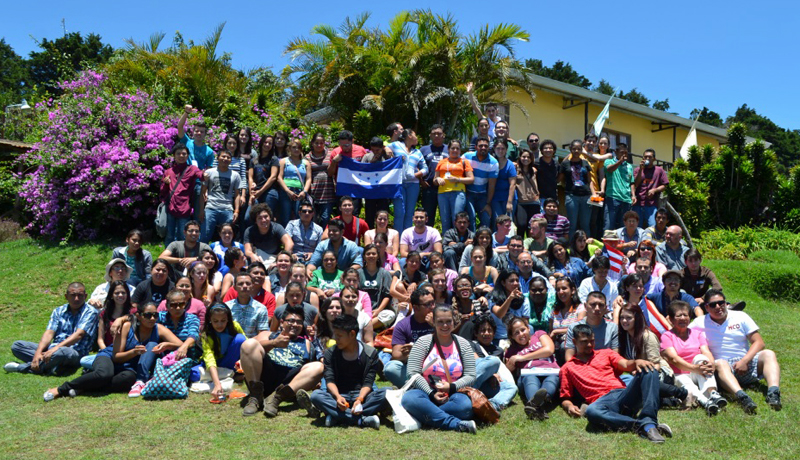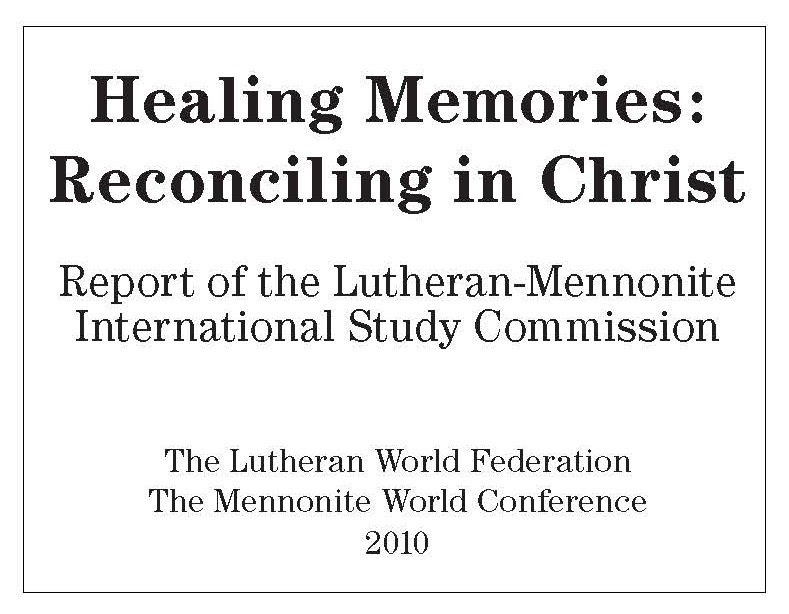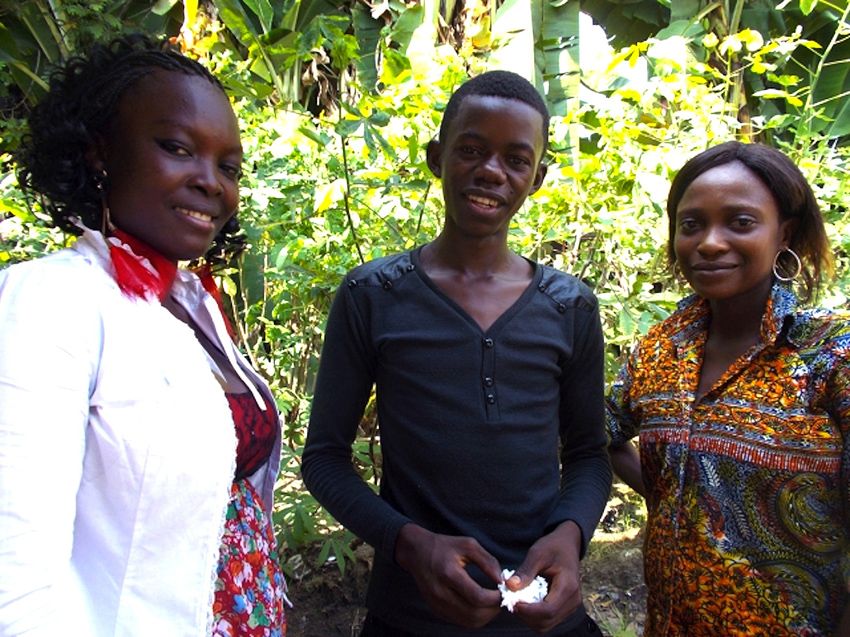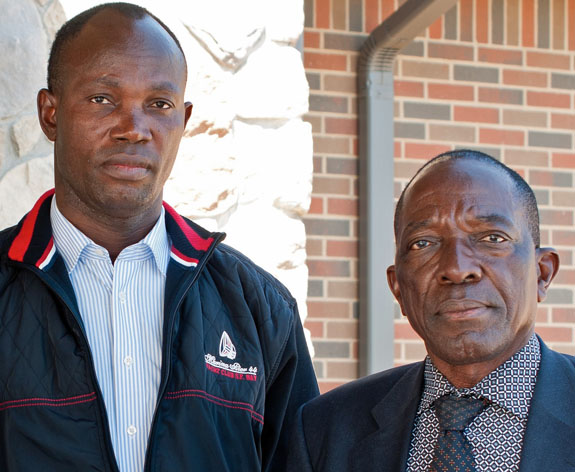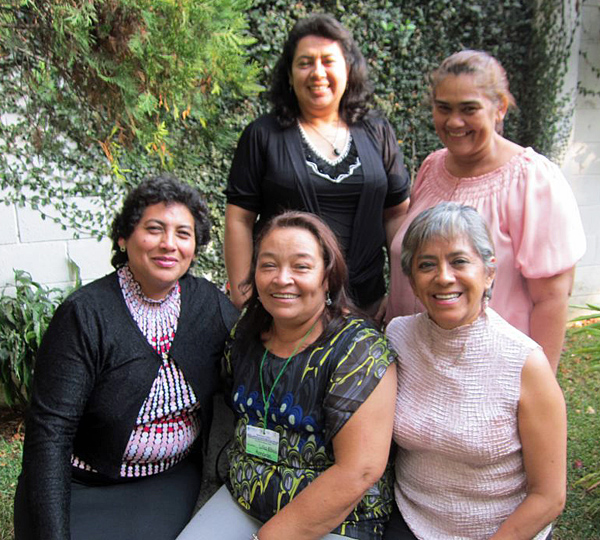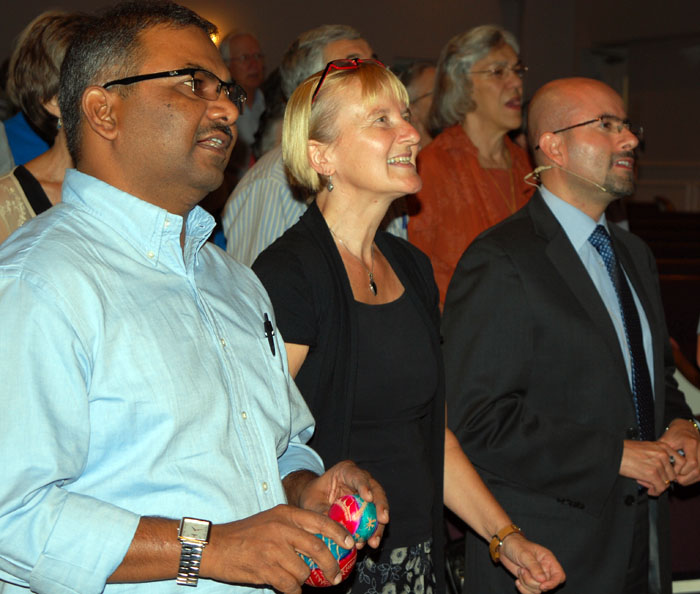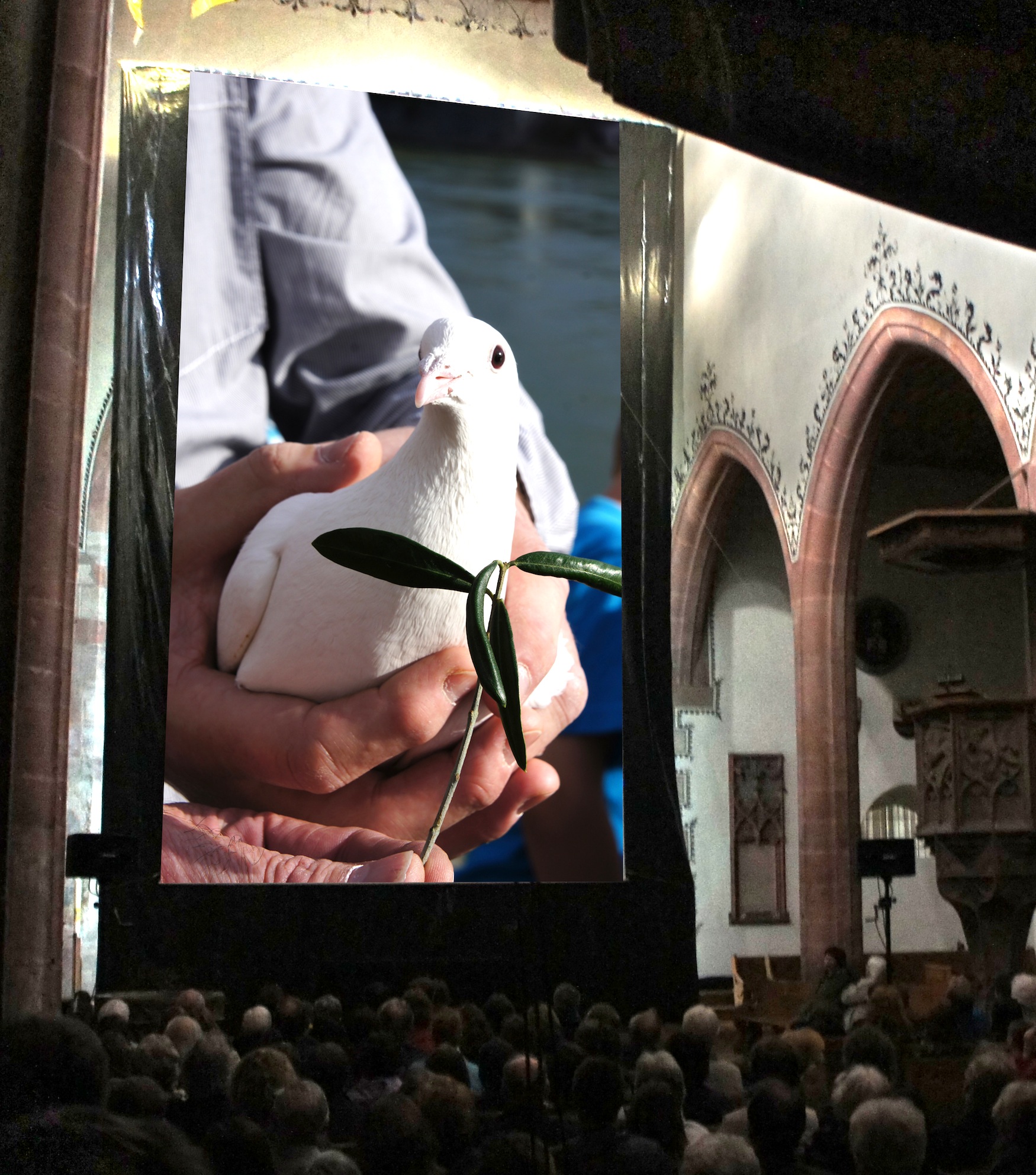-
Support for MWC draws on father’s lessons about giving
Goshen, Indiana, USA – From an early age, Myrl Nofziger, a real estate developer from Goshen, Indiana, USA, learned life-shaping lessons about philanthropy, benefiting many Mennonite organizations, including Mennonite World Conference. “My father talked and lived giving every day,” says Nofziger. “For him, giving included not only one’s money but also one’s intellect, feelings, volunteerism
-
Sustaining the church through sustainable agriculture
Democratic Republic of Congo and Burkina Faso – Five Mennonite World Conference member churches recently collaborated on a project intended to build self-sustainable church programs within African Mennonite communities. Communauté Evangélique Mennonite (Evangelical Mennonite Church) of DR Congo and Église Évangélique Mennonite du Burkina Faso (Evangelical Mennonite Church of Burkina Faso) partnered with Mennonite Church Canada,
-
French-speaking Mennonites hold first consultation on theological education
Kinshasa, DR Congo – The Francophone Mennonite Network, working under the auspices of Mennonite World Conference, attempts to foster relationships and projects among French-speaking Mennonites from three continents. The first consultation on theological education among francophone Mennonites was held at the “Centre Universitaire de Missiologie” in Kinshasa (26-28 February 2014). Forty-five participants came from nine
-
Registration for Pennsylvania 2015 now open
Bogota, Colombia – Online registration for Pennsylvania 2015 opened 20 August through a redesigned and expanded Assembly section of the Mennonite World Conference website. The site includes information about Assembly Gathered, planned for 21-26 July 2015 in Harrisburg, Pennsylvania, as well as Assembly Scattered opportunities in many locations both before and after Assembly Gathered. The
-
Central American youth explore aspects of their Mennonite identity
Heredia, Costa Rica – Mennonite young people from a variety of countries came together for the annual Central American Mennonite Youth Conference in Costa Rica 27-30 March 2013. One hundred and twenty youth representatives from Guatemala, Honduras, Nicaragua, Costa Rica, Panama, Puerto Rico and Mexico shared with each other around the theme of “Mennonite Identity.”
-
Mennonites and Lutherans Continue Journey Toward Reconciliation
Goshen, Indiana – On 20-23 July, a six-member task force appointed by Mennonite World Conference (MWC) Faith and Life Commission met at Goshen College with counterparts from the Lutheran World Federation (LWF) to review progress globally on the commitments that the two global communions made to each other in a service of reconciliation in Stuttgart,
-
Congolese youth strengthen ties
DR Congo — In a world where differences and distance often divide people of faith, Mennonite youth in the Democratic Republic of the Congo are participating in an exchange program to strengthen ties among the country’s three Mennonite conferences. The exchange program, called Menno-Monde, or Menno-World, allows youth to spend a week or two living
-
Congolese visitors seek resources for their fast-growing church
Elkhart, Indiana – A quest to learn how Mennonite Church USA congregations and agencies find resources for their ministries brought Macaire Kilambo Kabanga and Roussel Kimakamba, lay leaders in Communauté Mennonite au Congo (Mennonite Church of Congo – CMCO) on a recent month-long tour of the United States. “Our church is growing,” said Kumakamba, who
-
Theological training scholarships awarded to 21 women
Goshen Indiana, USA – In 2013, Mennonite Women USA’s International Women’s Fund (IWF) awarded scholarships totaling $10,500 to 21 women in India, Africa and Latin America. Scholarships are used by recipients in pursuit of theological training for church leadership. Prospective students are referred to Mennonite Women USA by church leaders in their countries, or by
-
Kick-off celebrations held a year before 2015 MWC Assembly
Harrisburg and Mount Joy, Pennsylvania, USA – Mennonites and Brethren in Christ in eastern Pennsylvania enthusiastically welcomed Mennonite World Conference leaders on Sunday, 20 July at two kick-off celebrations, exactly one year in advance of the opening of the 21-26 July 2015 MWC Assembly, Pennsylvania 2015. One event was held in the morning at Harrisburg
-
Peacemakers’ screened at the Night of Faith in Basel
Basel, Switzerland – More than 1,000 people saw the movie “Peacemakers” at the Theodorskirch during the first Festival of the Night of Faith that took place in Basel on 17 May 2013. During seven screenings between 5:00 pm and 12:30 am, the 25 minute movie created and produced by Max Wiedmer and his team attracted
